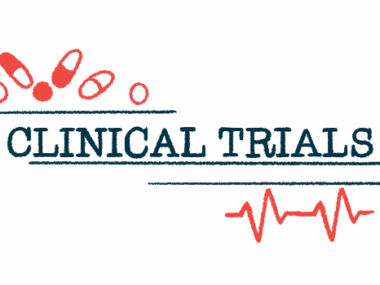RXC007 for IPF Showing Favorable Safety in Ongoing Phase 1 Trial
Written by |

RXC007, an investigational oral therapy for idiopathic pulmonary fibrosis (IPF), is showing favorable safety and pharmacological properties in an ongoing Phase 1 trial in healthy volunteers.
The experimental therapy being developed by Redx Pharma works by blocking the activity of ROCK2, a protein involved in a signaling cascade that is thought to promote fibrosis, or tissue scarring, in IPF and other fibrotic conditions.
“By inhibiting ROCK2, we believe we’ll be able to impact on numerous pro-fibrotic drivers … which we believe will be the most effective way to treat fibrotic disease,” Peter Bunyard, PhD, head of fibrosis biology at Redx, said during the company’s Virtual R&D Day webcast hosted on Oct. 11.
RXC007 is a “highly selective, oral, and very potent inhibitor of ROCK2,” Bunyard said.
Notably, RXC007 does not block a related protein, called ROCK1. Inhibiting both ROCK proteins can lead to abnormally low blood pressure and an elevated heart rate. According to Bunyard, RXC007 “categorically avoids” these safety concerns with its specificity for ROCK2.
The investigational medicine has shown promise in animal models, as well as in experiments performed on tissue samples from IPF patients. There is “very strong preclinical proof-of-concept data [for RXC007] in IPF and other fibrotic diseases,” Jane Robertson, MD, chief medical officer at Redx, said in the webcast.
Dosing in a Phase 1 clinical trial (NCT04931147), evaluating the safety, tolerability, and pharmacological properties of oral RXC007 in healthy volunteers, began in June. Participants to date have received a single dose of RXC007, at doses ranging from 2 to 40 mg, and no notable side effects or other safety problems have been reported.
Existing pharmacological data suggest that, at the higher tested doses, the medicine’s active ingredient is “achieving biologically relevant exposures,” Robertson said.
These data also indicate that RXC007 has an half-life of about 11 hours when administered at the 40 mg dose, supporting once-daily dosing, Robertson said. A half-life is a pharmacological parameter that indicates the time it takes for the levels of a specific medicine to drop by half.
The Phase 1 study, in about 80 healthy men, is ongoing at its U.K. site. A next part, testing multiple increasing doses of the experimental therapy, is expected to open shortly. The study is also looking at the effects of food and other medications on RXC007’s movement through the body.
Assuming Phase 1 data remain positive, Redx plans to start testing RXC007 in a Phase 2 trial in IPF patients next year.
Phase 2 testing will follow a staged approach, Robertson said. It begins with a comparatively small Phase 2a study to assess the safety and tolerability of different doses of RXC007, when given alone or alongside other standard-of-care IPF treatments.
“This first study will allow us to look at effects on target engagement biomarkers, disease biomarkers, and will give us some early efficacy readouts based on CT scan imaging endpoints,” Robertson said.
Results from this study will then inform the design of a larger Phase 2b trial, which will test RXC007 in combination with standard-of-care therapies against standard treatment alone over 12 months. Its main goal will be to assess RXC007’s effects on lung function.




